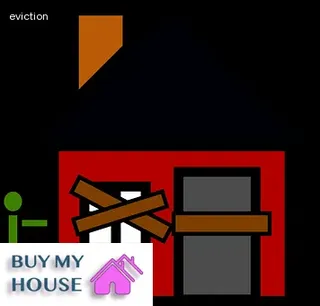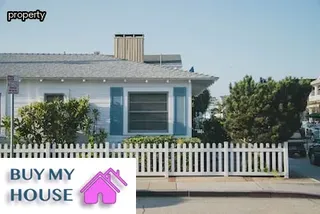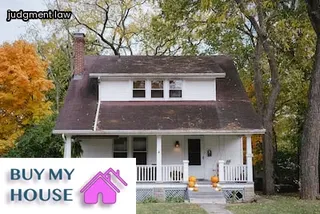The eviction process in Utah is a complex and lengthy procedure that must be followed precisely. It’s important to understand the laws and regulations surrounding eviction in the state if you are considering pursuing this legal action against a tenant.
In order to evict someone, the landlord must first provide written notice of the violation or nonpayment. The type of notice depends on the reason for eviction, and it must be served either by certified mail or personal delivery.
After this step is completed, a summons and complaint may be served on the tenant which will give them three days to respond before going to court. If they fail to respond, an uncontested judgment of eviction can be given without having to go through a trial.
In cases where there is a dispute, tenants have the right to appear in court and present their case. Depending on these factors, how long does the Utah eviction process take? Generally speaking it can take anywhere from two weeks up to several months for an eviction to be completed as every situation is unique and subject to change based on legal proceedings.

Before filing an eviction in Utah, it is important to understand the process and how long it may take. In Utah, the eviction process starts with the landlord issuing a 3-day notice to the tenant that outlines why they are being evicted and what they must do to remedy the situation.
If the tenant does not comply within three days, then the landlord can file an eviction lawsuit with their local district court. Once the paperwork is filed, a hearing date will be set.
At this point, it typically takes anywhere from one to three weeks for a judge to make a decision regarding the eviction. After this decision has been issued, if necessary, a writ of restitution can be requested so that law enforcement will physically evict any remaining tenants from the property.
The entire Utah eviction process can take up to two months depending on various factors such as delays from court or local law enforcement.
Serving the tenant with a notice of eviction is an important step in the Utah eviction process. In Utah, landlords must provide tenants with an official notice of eviction before they can proceed to court.
The type of notice used depends on the reason for the eviction, but typically it will be either a 3-Day or 10-Day Notice to Quit. Landlords must make sure that the tenant receives their notice correctly; otherwise, their case may be dismissed in court.
A landlord cannot simply hand over the notice to the tenant themselves; they must use an authorized delivery method such as certified mail or personal service from a sheriff or constable. Furthermore, if no one is present at the time of delivery, then landlords may post it on the tenant’s door.
Once served, tenants have either three or ten days (depending on the type of notice received) to vacate their property or face legal action by their landlord in court.

Failing to comply with an eviction notice can have serious consequences for both landlords and tenants. Depending on the state, a landlord is allowed to start the eviction process anywhere from three days to two weeks following a tenant's failure to meet rental obligations or violation of the lease agreement.
In Utah, if a tenant does not respond to an eviction notice, they may be subject to further legal action including being charged with criminal contempt of court. If found guilty, they could face fines and even jail time.
Additionally, they will still be liable for any unpaid rent or other damages that have accrued since receiving the eviction notice as well as court fees associated with the case. Furthermore, a tenant's credit score could be negatively impacted by an eviction record and it could also make it difficult for them to find future housing in their area.
Filing a lawsuit for possession of your property is the final step in the Utah eviction process. It requires landlords to file paperwork with the court and provide evidence that a tenant has not paid rent or otherwise violated their lease agreement.
This includes providing proof that all other attempts to resolve the situation, such as serving a written notice, have been exhausted. The entire eviction process can take anywhere from several weeks to several months depending on factors like whether or not the tenant responds to the lawsuit and the complexity of the case.
In order for a landlord to be successful in obtaining possession of their property, they must prove in court that they have followed all applicable state laws and regulations. Additionally, if there are any issues regarding security deposits or other financial matters between landlord and tenant, those must also be addressed during this process.

When landlords are faced with the decision to evict tenants, they must present evidence to the court in order to prove that the eviction is valid. This evidence can include proof of non-payment of rent, violation of lease terms, or other illegal activities taking place on the property.
It is important for landlords to provide documentation such as rental agreements, receipts, canceled checks, and any other relevant paperwork that could demonstrate why an eviction is necessary. Additionally, if there are witnesses who can verify any wrongdoing by the tenant, this should be included as well.
Lastly, if a landlord has allowed a tenant to break the rules in the past and not enforced them consistently, this could weaken their case and affect how long it takes for an eviction process in Utah to proceed. Therefore, obtaining strong evidence is key for successful evictions in Utah.
Asking for possession of the property in Utah can be a difficult process. In order to ensure that all parties involved are on the same page, it is important to understand the timeline of the eviction process and how long it typically takes.
Before starting the eviction process, landlords must serve tenants with an appropriate notice and wait for them to comply with the terms of their lease or vacate the premises. The amount of time required to complete this step varies from state to state, but in Utah, it generally takes seven days if tenants are given a three-day notice.
After this period has passed, landlords have the right to file an eviction lawsuit if tenants have not vacated or complied with their rental agreement. This process can take anywhere from one month to six weeks depending on court backlogs and other delays.
It is important for landlords to be patient throughout this process as they will eventually gain possession of the property in accordance with Utah law.

The Utah eviction process can take anywhere from a few days to several weeks, depending on the circumstances. It is important for landlords and tenants to understand the timeline for an eviction in order to ensure that all parties involved follow the proper procedures.
The first step is for landlords to issue a three-day notice. This must be served in person or by certified mail, and tenants must receive it within three days of its issuance.
After the notice is served, the tenant has three days to either pay what they owe or vacate the premises. If they do not comply, then landlords may file an eviction action with the court.
Once this is done, a summons will be issued and served on tenants, giving them seven days to respond before a hearing date is set. On that date, both sides make their case before a judge who will ultimately decide whether or not to uphold the eviction order.
In some cases, tenants may have just cause for not paying rent; if so, they may be able to remain in their home while working out repayment arrangements with their landlord. No matter the outcome of the hearing, it's important that all parties understand what's required of them throughout each step of Utah's eviction process.
Once a landlord has been granted possession of their property in Utah, they should expect the eviction process to proceed according to the rules and regulations set forth in Title 57 of the Utah Code. Typically, this involves serving an eviction notice on the tenant, allowing them a certain amount of time to vacate the premises, and then filing a Complaint for Eviction with the local court.
If the tenant fails to leave within the allotted timeframe, then a Writ of Restitution will be issued by the court, which orders law enforcement to physically remove any tenants who remain on the premises. The length of time it takes for a landlord to regain possession of their property after receiving a Writ of Restitution can vary depending on how quickly law enforcement is able to act on it.
After any personal possessions left behind have been cleared away, landlords can begin preparing their property for re-rental or sale.

The eviction process in Utah can be a difficult and lengthy one, but understanding the necessary steps can help make the process smoother. Knowing how long the eviction process takes is essential for landlords, tenants, and property managers alike.
Landlords must adhere to strict laws and regulations when initiating an eviction. Tenants need to familiarize themselves with their rights under Utah landlord-tenant law or seek legal advice if they are facing eviction.
Property managers should have a thorough understanding of the various statutes governing evictions in order to properly protect their clients' interests. It is important to note that in Utah, evictions must be conducted through court proceedings.
Additionally, it is unlawful for landlords to take any action against tenants without first obtaining a court order. The length of an eviction in Utah may depend on several factors such as the nature of the case and any applicable appeals.
It is generally accepted that evictions could take anywhere from two weeks up to several months. In some cases, it could even take longer depending on any delays or disputes that may arise during the course of proceedings.
In Utah, there are certain legal reasons for evicting a tenant. The most common cause for terminating a lease and initiating an eviction process is when a tenant fails to pay rent.
If rent is not received on time or in full, then the landlord has the right to begin the eviction process as soon as possible. Other reasons for eviction include when a tenant breaks the terms of their lease agreement, such as having unauthorized occupants living in the rental unit, damaging property, or creating disturbances.
Eviction can also occur if the tenant is engaging in criminal activities on or near the rental premises. In cases like these, it is important to understand that landlords have an obligation to take action and protect other tenants and their property.

The Utah eviction process timeline can vary depending on the circumstances of each case. Generally, the process begins with the landlord serving a written notice to the tenant that outlines their violation of the lease agreement and provides them with an opportunity to remedy the violation.
If the tenant fails to remedy the violation within a specified period of time, then the landlord can proceed with an eviction lawsuit. After filing a complaint with court, a hearing will be scheduled where both parties can present evidence and testimony in support of their positions.
The court will then render a decision regarding whether or not an eviction should occur. Upon a favorable ruling by the court, law enforcement may be contacted to enforce the order and remove any non-compliant tenants from the property.
It's important to note that this entire process is subject to change depending on several factors including local laws, attorneys involved in representing either side, and how long it takes for each step of this procedure to take place.
Navigating the eviction process in Utah can be a daunting task, so it's important to be aware of all the steps involved. A landlord must typically provide written notice at least three days prior to filing an eviction complaint with the court, and the tenant must then respond within seven days.
The court will then determine if a hearing is necessary; if so, it may take up to two weeks for a date to be set. After the hearing date is set, it usually takes another two weeks for a ruling to be handed down by the court.
It's essential for both landlords and tenants to understand their rights throughout this process; landlords should have all documentation pertaining to their case ready before filing, while tenants should do their best to keep communication open with their landlord and make sure they attend any hearings or meetings that are scheduled. With these tips in mind, you can ensure that your eviction proceedings go as smoothly as possible.

When filing an eviction in Utah, it is important to take advantage of the resources available. It can be helpful to research local laws and regulations before beginning the process, as well as familiarizing yourself with the Utah court system.
This will give you a better understanding of the steps involved in the eviction process and how long it typically takes from start to finish. Knowing what to expect can also help you plan for any delays that may occur due to paperwork or other administrative issues.
Additionally, there are a number of legal services and organizations that specialize in evictions and can provide you with further guidance throughout the entire process. Having access to such resources can help make filing an eviction in Utah simpler and smoother while ensuring you remain in compliance with all relevant laws.
When undergoing a Utah eviction process, it is important to be aware of the do's and don'ts in order to ensure that the process runs as smoothly and quickly as possible. It helps to familiarize yourself with the Utah landlord-tenant laws and regulations, including understanding how long the process typically takes.
Do provide your landlord with written notice if you need to terminate your lease and communicate with them about any disputes or disagreements in a professional manner. Don't forget to pay rent on time and keep accurate records of all payments made.
Additionally, if you are facing an eviction, it is best not to ignore court notices or documents sent by your landlord as this can result in extended delays in the eviction process. Ultimately, by following these do's and don'ts during an eviction you can help expedite the entire process.

DoorLoop is the perfect solution for hassle-free portfolio management. Whether you're a landlord, tenant, or property manager, DoorLoop makes it easy to keep track of your rental units and the Utah eviction process.
With DoorLoop's intuitive interface, you can quickly and easily manage and update your portfolio information with just a few clicks. With features such as automated rent collection tools and customizable tracking systems, DoorLoop is the perfect platform for managing your Utah eviction process efficiently and accurately.
Plus, DoorLoop provides access to helpful resources such as legal advice on tenant rights and landlord obligations to make sure you stay up-to-date on the latest trends in rental housing law. So if you're looking for a way to streamline the Utah eviction process while keeping your paperwork organized, look no further than DoorLoop.
DoorLoop is a great way to get ahead and save time and money with their automated services. By signing up, you will have access to free downloads that can help you get ahead of the Utah eviction process.
DoorLoop's automated services make it easier for users to manage their eviction process with precision accuracy and minimal effort. With DoorLoop, you can request a demo to see how it impacts your bottom line and save time by automating certain processes.
By signing up, you are agreeing that you accept the Terms & Conditions of DoorLoop. With all these benefits, DoorLoop is an ideal choice for users wanting to streamline the Utah eviction process quickly and easily.
The Utah eviction process can take anywhere from 28 to 45 days, depending on the specifics of the case. It begins with the landlord serving a notice to quit or pay rent, which gives the tenant three days to either vacate or pay rent owed.
If that does not happen, then the landlord must file a formal complaint in court. The court will send out notices and schedule a hearing date.
If the tenant fails to appear at this hearing, then a default judgment may be entered against them. After that, the sheriff's department may be asked by the court to issue an eviction order giving tenants five additional days to move out.
If they still fail to do so, then their belongings can be removed from the property and stored until they are able to reclaim them. In some cases, if the tenant does not have enough assets or money to cover any damages or rent due, then it is possible for an eviction process to take up 45 days.

If you are facing eviction in Utah, you may be able to delay the process. Depending on the circumstances, it is possible to delay an eviction for a few days or even weeks.
The first step is to contact your landlord and explain your situation. Your landlord may be willing to work out an arrangement that will allow you additional time to make necessary payments or find another place to live.
This could involve signing an agreement specifying when the rent must be paid in order for the eviction process to be halted. It might also involve providing proof of income or other financial documents that demonstrate your ability to pay back any past due rent.
In some cases, the landlord may offer assistance with moving costs or other expenses associated with relocation. If these negotiations do not lead to a mutually agreed upon solution, then filing for bankruptcy or seeking legal assistance may also provide avenues for delaying an eviction in Utah.
An eviction on your record in Utah can stay for up to seven years, or longer depending on the circumstances of the eviction. If a tenant is ever evicted, it will show up on their credit report and will be visible to potential landlords.
This means that even if a tenant has since paid off the debt associated with the eviction, the eviction itself will still remain on their record. Furthermore, if an eviction has not been resolved properly, it could stay on a tenant's record for much longer than seven years.
It is important for tenants to understand the Utah eviction process and how long it can take before signing a lease agreement. Knowing how long an eviction can stay on your record in Utah may help tenants avoid unnecessary legal issues down the road.
In Utah, there are several grounds for eviction that a landlord can use to terminate a tenant’s lease. These include not paying rent on time, violating the terms of the lease agreement, damaging the rental property, engaging in illegal activities on the premises and creating a nuisance.
If an eviction is based on non-payment of rent, the landlord must provide a five-day notice to pay or move out before initiating eviction court proceedings. For other lease violations or nuisances, the landlord must provide a 10-day notice to either fix the violation or move out.
If the tenant fails to comply with either notice, then the landlord can file an eviction complaint with their local court.
A: The average length of an eviction process in Utah can vary from a few days to several months, depending on the complexity of the case and whether or not either party appeals. Generally speaking, the steps involved in complying with Utah’s eviction laws include: serving notice to vacate, filing a complaint with the court, attending a court hearing, obtaining a writ of restitution (if necessary), and executing the writ.